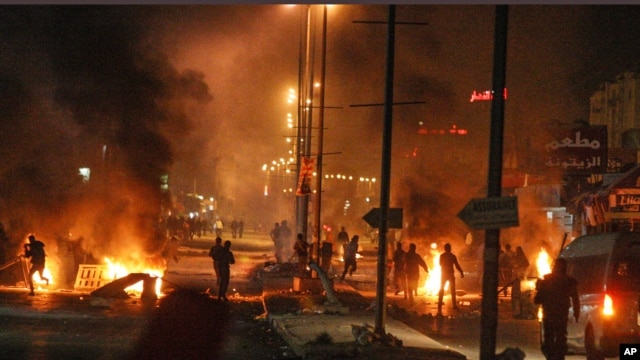ScienceRocks
Democrat all the way!
- Banned
- #1
Muslim Riots Spread Into Tunisia
NY Post ^
Read more: Anti-US protests spread to Tunisia as protesters try to storm embassy - NYPOST.com
Wow, Obama's middle east-north Africa policies seem to have failed.
NY Post ^
Anti-American rioting spread yesterday to Tunisia, where police used tear gas to stop hundreds of protesters from storming the United States Embassy in protest over a film mocking the prophet Mohammed.
The throngs of demonstrators, who carried the white and black banners of militant Salifist Muslims, had been protesting peacefully in Tunis for hours when about 300 started to break through the embassy gates.
The embassy remained open as police forced the protesters back.
Earlier, the US embassies in Tunisia and Algeria warned Americans to avoid crowded places because of expected protests.
In Egypt, the powerful Muslim Brotherhood ensured that the controversy wont end soon by calling for peaceful nationwide protests tomorrow outside all the main mosques . . . to denounce offenses to religion and to the prophet.
Egyptian Prime Minister Hisham Qandil said the United States should take a firm stand with the movies producers and act in accordance with international agreements that criminalize actions that create sectarian strife on the basis of race, color or religion.
Read more: Anti-US protests spread to Tunisia as protesters try to storm embassy - NYPOST.com
Wow, Obama's middle east-north Africa policies seem to have failed.



